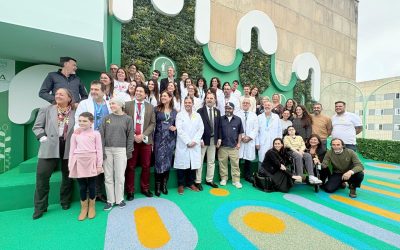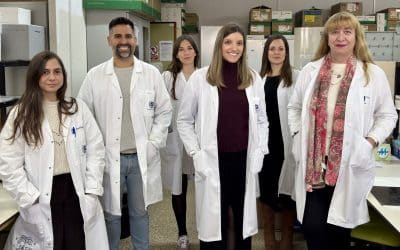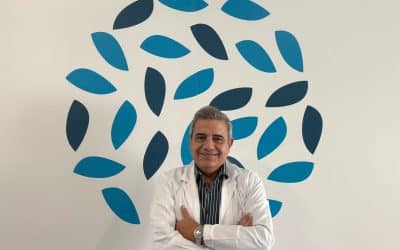The team, led by Emilio Alba, will use the funds raised for the study of the most common breast cancer and its recurrences.
The Malaga Biomedical Research Institute and Nanomedicine Platform (IBIMA Plataforma BIONAND) has received a donation of 7,000 euros from the Malaga Association of Women Breast Cancer Surgeons (ASAMMA), which will be used for a research project related to the genomic study of metastatic breast cancer.
Specifically, the study focuses on women with this disease who are treated with cyclin inhibitors, a new hormonal therapy against breast cancer - specifically the HR+/HER2 subtype, also called luminal - metastatic or locally advanced, which reduces the progression of the disease by inhibiting the cell cycle, that is, cell activation, which is also the most common form of this type of cancer.
The cheque presentation ceremony was held today and was attended by Jesús Fernández Galán, managing director of the Virgen de la Victoria University Hospital; Emilio Alba, head researcher of the CIMO 1 group, ‘Clinical and translational research in cancer’ of the IBIMA BIONAND Platform, director of the Intercentre Clinical Management Unit of Oncology of the Virgen de la Victoria University Hospital and director of the Centre for Medical and Health Research (CIMES) of the University of Malaga; Francisco José Tinahones Madueño, scientific director of the IBIMA BIONAND Platform and head of the Endocrinology and Nutrition Service at the Virgen de la Victoria University Hospital in Malaga; and Margarita Martín de Vidales, president of the ASAMMA Association, accompanied by a group of members of the association.
The donation raised has been made possible through various charitable activities that have been carried out in recent months. The funds will go towards a genetic study related to breast cancer that develops metastasis and its treatment with hormone therapy. The IBIMA research group ‘CIMO 1. Clinical and Translational Research in Cancer’, led by Emilio Alba, together with the principal investigator of the project, Tamara Díaz, will be in charge of the development of this study.
For his part, Emilio Alba, said that ‘there are countless signs of solidarity from the ASAMMA association that, time and time again, is committed to biomedical research and allows us to continue advancing in treatments aimed at patients to have a positive impact on the fight against the disease, thanks to a key biomarker in the approach to metastatic breast cancer’.
In Spain, breast cancer is the most frequent tumour in women, ahead of colorectal cancer, uterine cancer, lung cancer and ovarian cancer. Thirty percent of cancers diagnosed in women originate in the breast. Despite the fact that, at national level, breast cancer is the leading cause of death in oncology, this type of cancer has experienced a significant increase in patient survival in recent years thanks, in large part, to advances in research and new treatments available.
ASAMMA Association
The ASAMMA Association, which has been working in Malaga for 35 years, was born as an organisation dedicated to helping all those who have suffered - or are suffering - from this disease, as well as offering support to the families and direct environment of the patients.
On behalf of the ASAMMA association, its president, Margarita Martín de Vidales, pointed out that ‘this type of donation has meant an enormous effort on the part of the members of this group’. ‘Joining forces between all of us is the key to continue fighting against cancer and in favour of research because we must think not only of those of us who are here, but also of all those who will come in the future.’ Thus, the president of the association took the opportunity to reiterate that ‘one of the objectives of the association is to allocate all possible funds to biomedical research’, which is why ‘we organise a series of annual charitable activities in which there is a high level of participation, which allows us to donate from time to time so that professionals have the best tools and resources to carry out their work in the field of research’.



